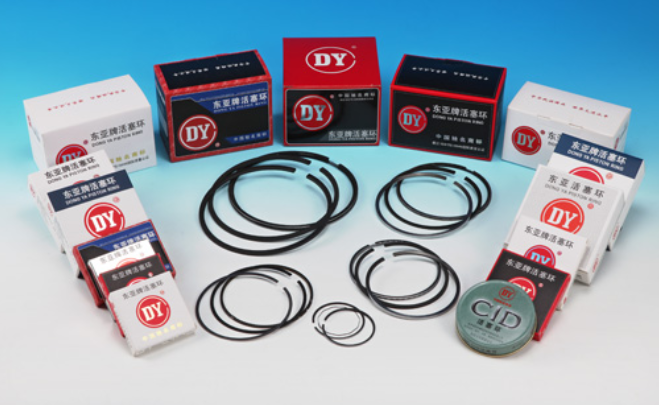Login

Login

Oct. 28, 2024
When selecting piston ring sets, mechanics often find themselves uncertain about whether to choose moly, chrome, or cast iron-faced top compression rings. According to recent findings, the choice of piston ring material can significantly impact engine performance and durability.
There's frequently confusion regarding the best type of ring set suitable for specific applications. In response, Dongya provides insights to help consumers make informed decisions tailored to their unique needs.
The foremost consideration when picking the right top compression ring face coating is the operating conditions of the engine. Factors like speed, load, driving style, and environmental conditions play crucial roles. For example, a typical family vehicle driven under standard conditions may not require elaborate ring face coatings. However, for engines subjected to extreme conditions, a well-informed choice is imperative.

The three prevalent types of top compression ring face coatings—chrome, moly, and cast iron—are each advantageous given varying operational conditions. Molybdenum, known for exceptional scuffing resistance, effectively retains oil but comes at a higher cost. Chrome offers good scuff resistance; however, it does not retain oil as well as moly. Plain cast iron piston rings remain a cost-effective and robust option under normal operating circumstances.
For light-duty services where the vehicle remains clear of extreme conditions—like prolonged high-speed travels or heavy loads—plain cast iron rings serve as adequate options. Cast iron piston rings are resilient under standard driving conditions, provided the engine is not exposed to excessive heat or dirt.
In contrast, continuous high speeds or heavy loads necessitate the use of moly rings due to their superior scuff resistance. Moly's inherent porosity allows for effective oil retention, while its high melting point aids in enduring more severe operational scenarios.
For operations in dusty settings like gravel pits or unpaved roads, chrome emerges as the best option. Chrome’s dense and hard surface minimizes dirt impingement, helping to prevent wear in the cylinders while allowing exhaust gases to expel airborne particulates efficiently. Although chrome has slightly less scuff resistance than moly, its smoother outer diameter helps mitigate contaminant issues.
For optimal performance, all three coatings are reliable under regular driving conditions with proper maintenance routines, such as routine oil changes and filter replacements. The expertise of the installer, along with a thorough understanding of the engine's typical usage, should lead to the selection of the most suitable ring set for the engine in question.
In conclusion, the choice of piston ring set is critical for engine longevity and efficiency. Understanding the specific application requirements can greatly assist in making an informed decision.
73 0 0
Previous: None
Next: None
Join Us

Comments
All Comments ( 0 )